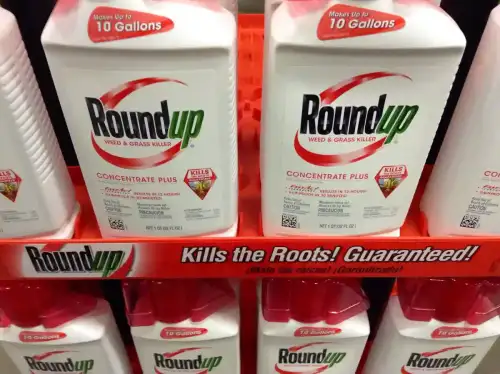Celiac.com 07/12/2024 - The Gluten-Free Certification Organization (GFCO) has long been considered a gold standard for gluten-free certification, offering rigorous testing and certification processes to ensure that products meet strict gluten-free criteria. However, a recent study conducted by Moms Across America has raised significant concerns about the reliability of GFCO's certification. The study found that 15% of randomly tested GFCO-certified products contained gluten levels above the organization's threshold of 10 parts per million (ppm), prompting a re-evaluation of GFCO’s procedures and standards.
Understanding GFCO Certification
The Gluten-Free Certification Organization (GFCO) is a program under the Gluten Intolerance Group (GIG) and is dedicated to certifying gluten-free products. The GFCO certification mark is a symbol of trust for consumers with celiac disease and gluten sensitivity, ensuring that products meet stringent gluten-free standards. According to the GFCO Manual Rev. 2024, the certification process involves several steps:
- Application: Companies must submit detailed information about their products and manufacturing processes.
- Audit and Testing: GFCO performs thorough audits and rigorous testing of products to detect gluten presence, using methods such as enzyme-linked immunosorbent assay (ELISA).
- Approval and Licensing: Products that pass the audit and testing phases receive GFCO certification and can display the certification mark.
- Ongoing Compliance: Certified companies must undergo annual audits and regular testing to maintain certification.
Celiac.com Sponsor (A12):
GFCO sets a strict gluten threshold of less than 10 ppm, which is more rigorous than the 20 ppm threshold set by the FDA.
Findings from Moms Across America Study
The recent study by Moms Across America has challenged the perceived reliability of GFCO's certification. The study tested 46 products, 32 of which were GFCO-certified, and found that 5 of these certified products contained gluten levels exceeding 10 ppm. This translates to 15% of the tested GFCO-certified products failing to meet the advertised 10 ppm certified gluten-free standard. Even more concerning, 3 of the 5 products that were GFCO certified contained gluten above the FDA's gluten-free limit of 20 ppm—so nearly 10% of them cannot even be labeled as gluten-free!
The study's findings have already spawned a class-action lawsuit against Trader Joe's for the gluten content found in their Everything Gluten-Free Bagels.
Analysis by Celiac.com - Possible Issues with Step-Down Testing Procedure
Celiac.com conducted an in-depth analysis of the Moms Across America study and scrutinized the GFCO Manual Rev. 2024. Our findings suggest that the compliance issues may stem from the "step-down" testing procedure allowed under GFCO guidelines.
According to the manual, companies with a history of negative test results are permitted to reduce the frequency of their product testing. This "step-down" approach can lead to decreased vigilance over time, potentially allowing gluten contamination to go undetected:
Expand QuoteThe annual audit report will always provide the highest, baseline level of Product testing that is expected from a Plant. Plants that have a documented history of testing with no positive test results in Products have the option of decreasing their Product testing level according to the following schedule. Plants that have a confirmed positive (greater than the Applicable Gluten-Free Threshold) gluten result in any Product should remain at or return to the higher, baseline level of testing described on their most recent audit report. This step-down schedule only applies to Products, and not to Ingredients.
The specific testing schedule outlined in the manual is as follows:
- Initial Testing: Test 40 consecutive lots three times per lot.
- Step Down 1: If all tests are negative, reduce to testing once per lot for 40 consecutive lots.
- Step Down 2: If negative, test any one certified product on 40 consecutive production days.
- Step Down 3: If negative, test any one certified product during 40 consecutive production weeks.
- Step Down 4: If negative, test any one certified product during 40 consecutive production months.
- Final Step Down: If negative, test any one certified product during each production quarter.
Additional testing schedules are provided for products initially tested less frequently:
- Once per day: Follow the same step-down process, reducing to weekly, then monthly, and finally quarterly if all results are negative.
- Once per week: Reduce to monthly testing after 40 consecutive weeks of negative results, then quarterly if all remain negative.
- Once per month: After 40 consecutive months of negative results, testing can be reduced to once per quarter.
If any product tests positive for gluten at any stage, the company must return to the higher level of testing frequency immediately. No plant is permitted to test less frequently than once per calendar quarter, ensuring a minimum level of ongoing scrutiny.
Allowing Self Testing Poses a Conflict of Interest
On page 26 of: https://gfco.org/wp-content/uploads/2024/05/GFCO-Manual.pdf
Expand QuoteTesting Methods, Documentation and Submission Testing can only be done using test kits found on the GFCO Approved Kit list. Alternatively, the plant may choose to have testing done by an outside lab that is accredited to ISO 17025 for gluten testing, again using a GFCO-approved method. In either case, test results should be completed and reviewed prior to the release/sale of certified Product.
The companies themselves, as opposed to an independent laboratory, can perform all GFCO certification testing, as long as they use a "GFCO-approved method." This model seems to open the door for an obvious conflict of interest issue where a company could send in false results, or test a different batch than one which might test over 10ppm. Any company could have a financial motivation to avoid a product recall, which is a very expensive process, or to avoid destroying a batch of products rather than selling them.
Given that companies can run all certification testing themselves, which can present potential conflicts of interest, the best solution would be for all testing to be done by an independent laboratory who would report the results directly to the GFCO, and those results should be publicly available on the GFCO website.
Implications for the Gluten-Free Community
The study's findings are particularly concerning for individuals with celiac disease, who rely on accurate gluten-free labeling to manage their health. Ingesting even small amounts of gluten can cause severe health issues for those with celiac disease, making reliable certification critical. The discovery that 15% of randomly selected GFCO-certified products contained gluten above the 10 ppm threshold undermines consumer confidence in GFCO's gluten-free certification.
Call for Stricter Testing Protocols
In light of these findings, there is a pressing need for GFCO to re-evaluate its testing protocols. The step-down approach, while offering companies less hassle and expense after passing a certain threshold, may not provide the consistent oversight necessary to ensure that all products remain gluten-free over time. Increased frequency of testing, even for companies with a history of compliance, could help mitigate the risk of gluten contamination and maintain the reputation of the GFCO gluten-free certification.
Conclusion
The recent study by Moms Across America highlights significant gaps in the current GFCO certification process. While the GFCO has set a high standard for gluten-free certification, the allowance for reduced testing frequency has revealed vulnerabilities that may need to be addressed. For individuals with celiac disease, the reliability of gluten-free certification is not just a matter of preference but a critical component of their health and well-being. Strengthening testing protocols and maintaining rigorous standards are essential steps toward restoring consumer trust and ensuring the safety of gluten-free products.
Note: Celiac.com reached out to the GFCO for comment about our article, but did not receive a response.
Join our forum discussion on this topic, and feel free to comment below.
08/08/2024 - Article updated to add "Allowing Self Testing Poses a Conflict of Interest" section.











Recommended Comments
Create an account or sign in to comment
You need to be a member in order to leave a comment
Create an account
Sign up for a new account in our community. It's easy!
Register a new accountSign in
Already have an account? Sign in here.
Sign In Now